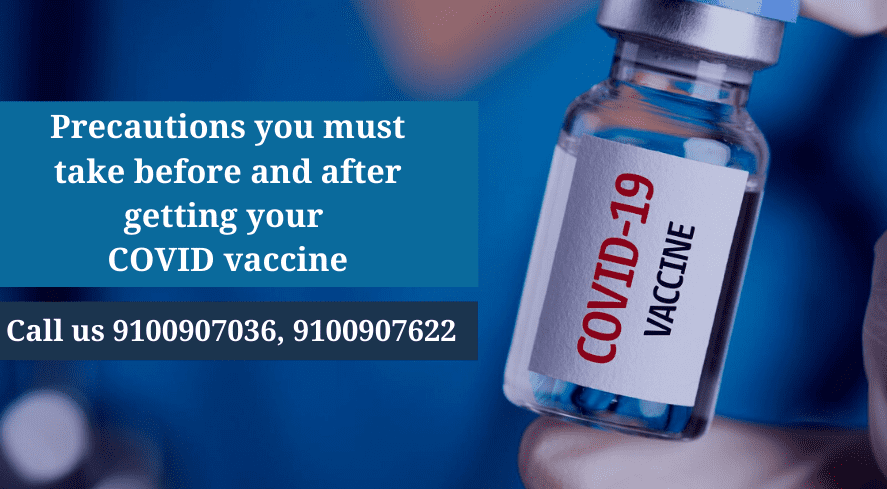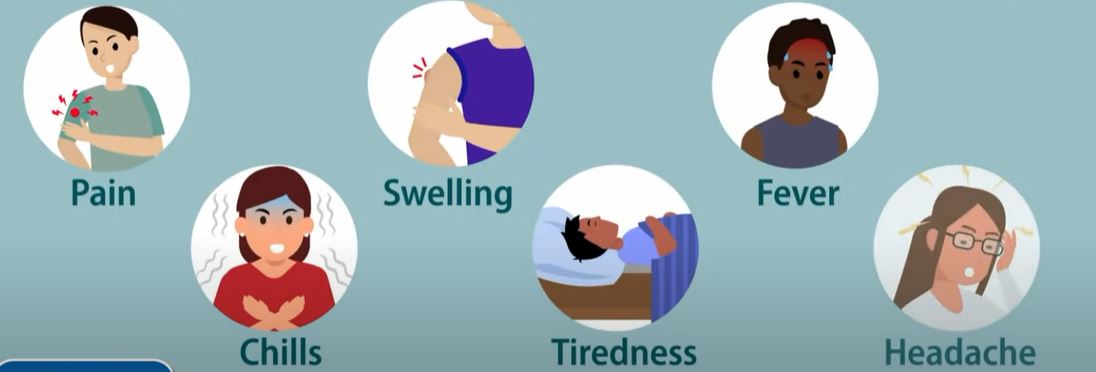Before vaccination
- In case a person has allergies to medication or drugs, it is essential to get an all-clear from a medical practitioner. A complete blood count (CBC), C-reactive protein (CRP), or Immunoglobulin-E (IgE) levels can be checked under medical advice.
- One should eat well and take medicines, if prescribed, ahead of vaccination. One should try to be as relaxed as possible; counselling can help people who are feeling anxious.
- People with diabetes or blood pressure need to keep these in check. Cancer patients, especially those on chemotherapy, must act on medical advice.
- People who have received blood plasma or monoclonal antibodies as part of Covid-19 treatment or those infected in the last one and a half months are advised not to take the vaccine right now.
After vaccination
- Getting a covid -19 vaccine will help keep you away from getting Covid19
- After getting Vaccinated, you may have some side effects, which are normal signs that your body is building protection against Covid-19
During clinical trials, common side effects include:
- Pain
- chills
- swelling
- fever
- Tiredness
- Headache
These side effects may affect daily activities and make you feel like you have the flu, but they should go away in a few days.
- If you have pain or discomfort from fever, talk to your healthcare provider about taking over-the-counter medications, such as ibuprofen or acetaminophen
- Use or exercise your arm and apply a clean, cool, wet washcloth over the area to reduce the pain and discomfort where you got the shot.
- Drink plenty of fluids and dress lightly if a fever is causing you discomfort.
- In most cases, discomfort from fever or pain is normal. Call your healthcare provider if redness or redness or tenderness increases after 24hours, if your side effects are worrying you, or if they do not seem to be going away after a few days.
- If you experience any of these signs, call your healthcare provider right away.
- After you’re vaccinated
Read more




